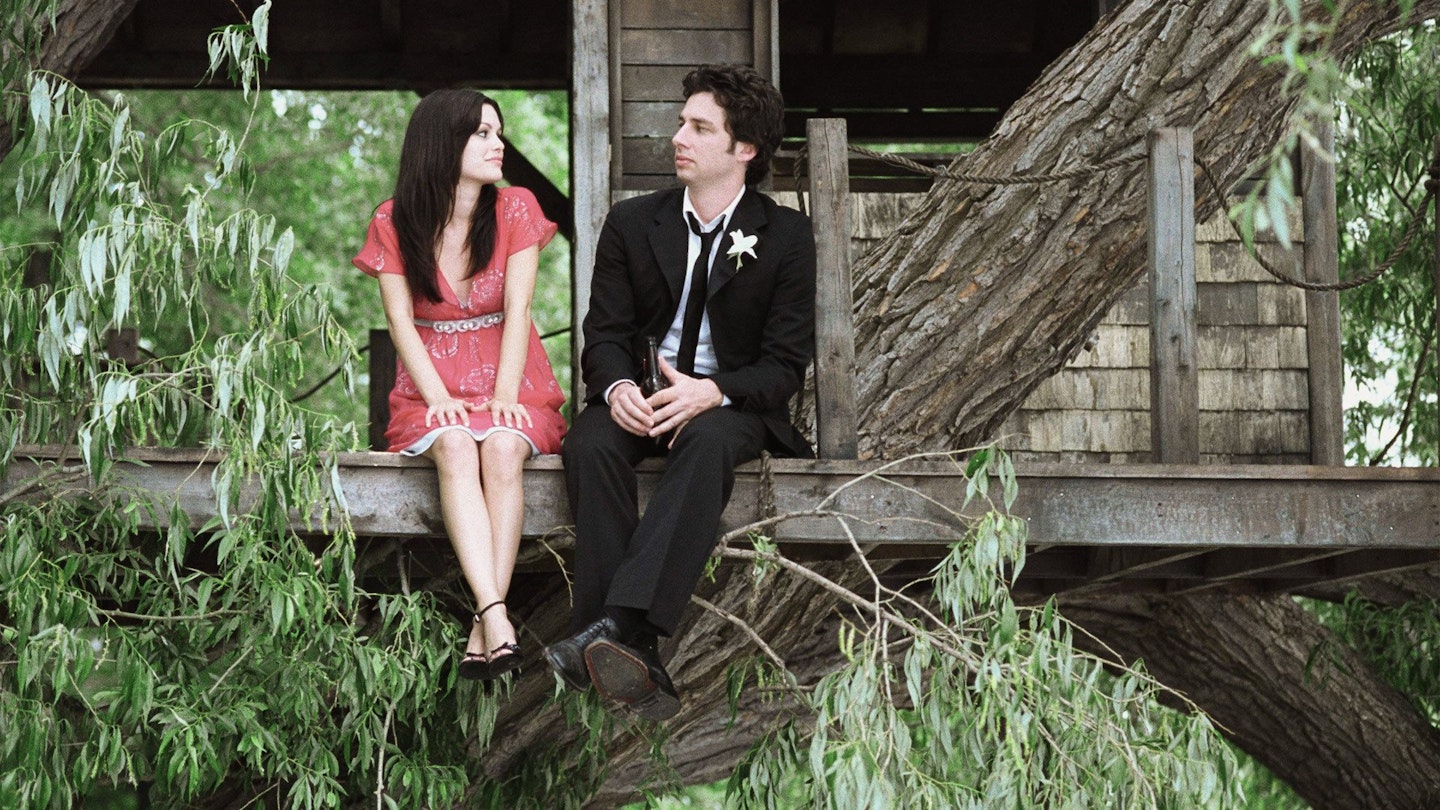It is a truth universally acknowledged that any romantic comedy/drama must lead satisfyingly to one couple being blissfully happy and anyone who’s been poking someone other than their beloved subjected to a life of misery and some light public humiliation at a wedding/prom/miscellaneous public function. The Last Kiss doesn’t obey these comforting rules, so it’s probably best avoided by the newly single or perpetually bitter. It should, however, be embraced by everyone else for not giving in to cookie-cutter endings, while remaining curiously uplifting.
Almost everybody in Tony Goldwyn’s movie is extremely self-absorbed, but that’s really the point. Michael (Zach Braff) is terrified at the prospect of fathering a child and giving up his youth; Kim (Rachel Bilson) would quite like to help relieve that terror with a bit of casual sex, despite his coupled status; Chris (Casey Affleck) is finding fatherhood a strain and would like a break; and even lovely Blythe Danner plays a woman sowing her wild oats because she’s bored with her repressed husband (Tom Wilkinson).
Judged by typical rom-com criteria they’re awful people, for whose uppance you cannot wait to come. But by everyday standards they’re just human. They all have flaws, are aware of that and hate themselves for it. They try to make up for their mistakes and sometimes screw things up further. They’re not all bad or all good. They just are. And that’s what makes them so interesting to watch. Most movie characters boil down to a single personality trait, so that we don’t have to think too hard about whether we should root for them or not. They’re the hero or the villain or the bitch. Seeing characters who have all those traits at different times is a novelty, you want to prod them and study them under a microscope, to see what little chemical wonders their combinations might bring.
Of course, too much authenticity can easily be depressing and far too much like real life. Last Kiss avoids smugness, despite the palatial houses and giant cars, with a cast that has easy appeal and a witty way with a throwaway joke. Nobody is the star here, whatever the credits say. Braff finds myriad ways to look ashamed of himself as Michael, a character who constantly makes the wrong choice, but is so clearly struggling to be good that it’s impossible to hate him.
The women in his life do equally well: Jacinda Barrett keeps her Little Miss Perfect girlfriend from straying into bland, while Bilson makes headway into a life outside The OC as the naïf dressed up as temptress. But it’s the elder statespeople, Wilkinson and Danner, who steal the show. Paul Haggis’ script might give them the best dialogue as a couple resignedly rather than happily married, but their finest moments of performance exist between the lines.
Talking of Haggis’ script, this adds another string to a bow now so full of strings that it probably qualifies as a harp. He’s proving himself to be the best adapter in the business (here re-jigging 2001 Italian movie L’Ultimo Bacio), which promises a great deal for Casino Royale. His dialogue is easy, funny and occasionally profound.
It sometimes has the rather pleased-with-itself quality that some felt blighted Crash, but that’s often because it has good reason to feel satisfied. The film has problems, certain characters seeming slightly abandoned once they’ve had their crisis, but neat endings for all would feel like a betrayal in a movie so striving for realism.
